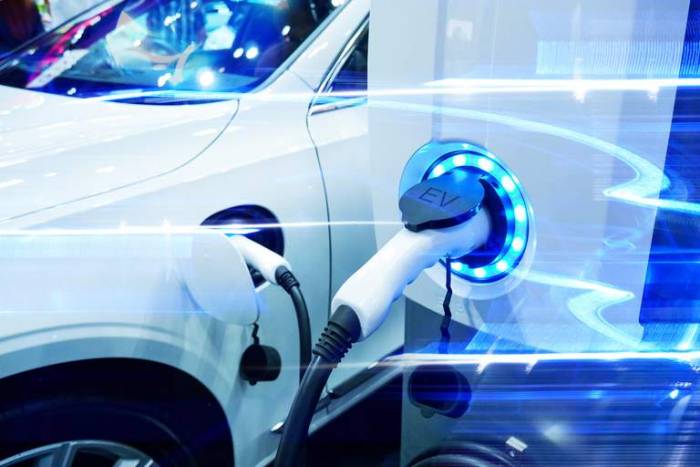The research suggests that switching to an electric vehicle (EV) could have a significant impact when it comes to protecting the planet.
But what exactly are EVs, and is it worth getting one?
Here’s everything you need to know about electric cars.
What are EVs and how do they work?
EVs are plug-in automobiles that are propelled by an electric motor. They are typically powered by rechargeable batteries.
To recharge the batteries, you plug the car into a charging station. Most people install one at their homes when they buy an EV, however it’s expected that charging stations will soon be available in various public places such as shopping centres, cinemas and stations.
In Kensington and Chelsea, London, for example, the council has set up charging sockets in certain street-lamps.
Most electric cars can run for 100 to 150 miles before the battery runs out, but engineers predict that batteries will be able to last for 400 miles in a decade.
How many people drive them?
As of 2017, there were over three million electric and plug-in hybrid cars in use across the globe.
Electric cars are increasing in popularity in the UK, with more and more people turning to the rechargeable vehicles - last month sales of the cars rose by 23 per cent compared to the same period in 2017, however electric cars still only make up a small proportion of all car sales in the UK.
Why do people like them?
The pros of driving an EV include the fact that they’re quieter and more environmentally-friendly than patrol cars as they have no exhaust emissions and emit no pollutants.
Given emissions from regular cars are thought to be responsible for the deaths of about 40,000 people in the UK every year, electric cars’ eco credentials are seen as a big draw for many.
How much do they cost to buy and run?
Electric cars are thought to be less expensive to run than traditional cars because they’re cheaper to repair and cheaper to fuel - driving 100 miles in an electric car will cost about £3 to £4, compared to about £15 in a petrol car.
What’s more, the UK government has introduced new regulations that mean EVs are exempt from certain taxes and levies. And in London, motorists who drive electric cars skip the congestion charge.
Having said that, electric cars cost more to buy in the first place on average.
The most popular electric car is the Nissan Leaf (from £25,190), 300,000 of which had been sold globally by January 2018.
The second most popular is the Tesla Model S (from about £73,000), with 213,000 sold by December 2017.
Are they safe?
Electric cars are as safe to use as petrol cars - they’re held to the same high standards of testing and have to meet the same safety requirements.
The Independent
More about: electriccars
















































